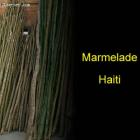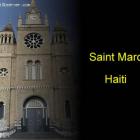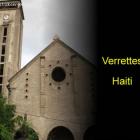Who in Haiti remember Spanish word for parsley: perejil, with its "r"
ADVERTISEMENT
The year was 1938 and the then President of the larger country, President Trujillo, ordered the killing of over 20, 000 people during five days in October that year. Their crime was for being Haitian, and their fates hinged on whether or not they could pronounce the Spanish word for parsley, with the rolling "R" that is synonymous with the Spanish language. Of course, the French influence gave them away for Haitian, as they condemned themselves with the more guttural pronunciation of the word, and they were subsequently killed.
The truth is, many have forgotten about this past horror. The story largely lives on through the art of scholars and writers. The event has been chronicled in the past in works by Pulitzer Prize-winning poet Rita Dove in "Parsley", in "Massacre River" by René Philoctète, and by famous Haitian-American author Edwidge Danticat in,"Farming of the Bones".
Today, one such writer and performer, Edward Paulino, is taking the story to the stage in a 20-minute, one-man show named "Eddie's Perejil". Helped along by his director, a fellow actress, poet and writer,Samantha Galarza, Paulino tackles the subject as an American man of Dominican heritage. In it, his set, dress and delivery may be described as simple, but his few props, including a jar of parsley, a guitar, and a Dominican flag help him tell his story of discovering his ties to the Caribbean country, and his adjusting to the knowledge of the crimes against humanity committed by his kin.
Read more: dominican, Dominican Republic, Parsley Massacre, International
« Martelly, Desras and Thimoléon reach agreement | Main | Retired US General, Wesley Clark, sees hope for Haiti »
All Comments (1)
The massacre of Moca and Santiago at the hands of Haitian troops
The massacre of Dominicans committed by Haitian troops under command of Jean Jacques Dessalines and Henri Cristophe.
In 1804 two Haitian armies invaded the eastern part of the island at the time, the southern army comanded by Dessalines, and the norhern army commanded by Cristophe, both met at the city of Santo Domingo, were french troops, and Dominicans barricaded themselves, and held the Haitian troops for several months.
Desalines desided to head back to Haiti, After hearing some rumors that french ships were headed to Port Prince, on his way back to Haiti Desalines killed, and slaved thousands of Dominicans, and burned several towns, and cities.
Leave a Reply
Name (required) E-mail (required, will not be published)
» »
Our objective is to share with you news and information about Haiti and the people of Haiti. Traditions, habits and the way we were or grew are alive in this site. We highly recommend that you Subscribe to our Newsletter and also share with us some of the things that are memorable and made us unique people.


 Haitians are a Proud People
Haitians are a Proud People  Marmelade, Haiti
Marmelade, Haiti  Life After Death
Life After Death  Saint Marc, Haiti
Saint Marc, Haiti  Verrettes, Haiti
Verrettes, Haiti